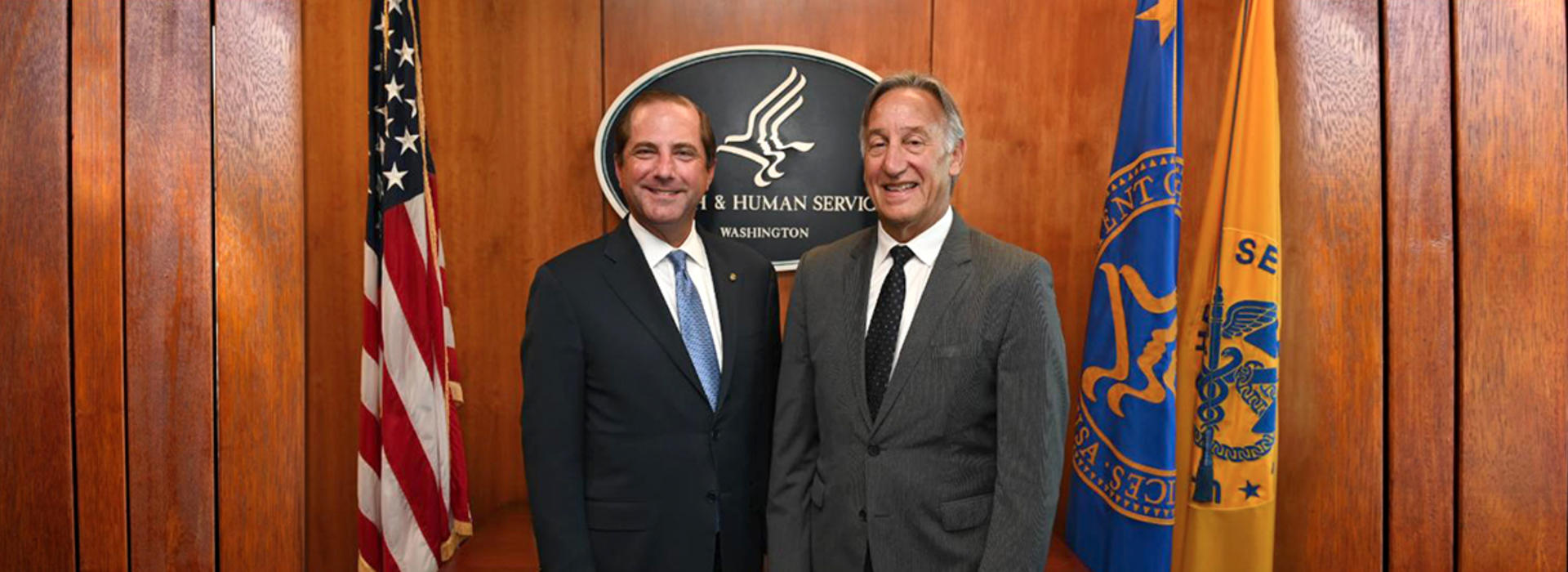
Efforts to Advance Kidney Care Led by UMN Medical School Vice Dean for Education and Academic Affairs Receives Significant White House Endorsement
Approximately 40 million people in the United States are living with some form of kidney disease, among those, more than 730,000 are in Minnesota.
Mark Rosenberg, MD, FASN, University of Minnesota Medical School Vice Dean for Education and Academic Affairs and President of the American Society of Nephrology (ASN), is leading efforts to improve care for those with kidney disease. Through this work, ASN established a partnership with the Department of Health and Human Services to accelerate innovation in the prevention and treatment of kidney disease, known as Kidney X.
“This has been many years of work trying to get to this stage; trying to get the upper echelons of the administration to really recognize kidney disease,” said Rosenberg. “Our initiative is changing the status quo in renal replacement therapy for patients by focusing on more choices for dialysis modalities and greater access to transplantation, and for patients in the future, by focusing on the development of innovative new therapies, such as more portable dialysis and artificial kidneys. The idea is to make care better for patients, give them more treatment options and to spur innovation.”
Earlier this month Dr. Rosenberg was invited to meet with the Department of Health and Human Services Secretary, Alex Azar, and then went to the White House where he participated in a listening session with the Domestic Policy Council and other administration officials. On July 10, he was one of nearly 500 people who witnessed President Donald Trump sign the Executive Order on Advancing American Kidney Health.
“It was one of the most exciting days in my 35-year nephrology career. This administration is driving bold, comprehensive change by elevating kidney health and prioritizing the prevention, diagnosis and treatment of kidney diseases to slow progression. This new strategy re-aligns priorities, practices, and payments to better achieve kidney health for all people.”.
Department of Health and Human Services is also proposing a population of kidney patients receive home therapy or transplants, rather than be in a center for dialysis.
“I expect this transformative HHS-wide kidney policy will change incentives and help nephrologists focus more attention upstream to work for greater kidney health. It’s a more holistic approach to care that is patient-focused and reflects significant input from the kidney community. Importantly, the strategy outlined includes both shorter-term objectives and policy changes that will help more patients today and longer-term strategies that will fundamentally transform kidney therapeutics,” says Rosenberg.
The vision articulated in the Executive Order marks one of the biggest policy transformations for advancing kidney health in nearly fifty years.